Filter by
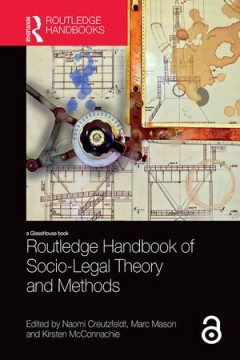
Routledge Handbook of Socio-Legal Theory and Methods
Drawing on a range of approaches from the social sciences and humanities, this handbook explores theoretical and empirical perspectives that address the articulation of law in society, and the social character of the rule of law.The vast field of socio-legal studies provides multiple lenses through which law can be considered. Rather than seeking to define the field of socio-legal studies, this…
- Edition
- -
- ISBN/ISSN
- 9780429952821
- Collation
- -
- Series Title
- -
- Call Number
- 340
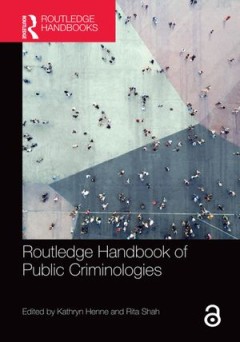
Routledge Handbook of Public Criminologies
Featuring contributions from scholars from across the globe, Routledge Handbook of Public Criminologies is a comprehensive resource that addresses the challenges related to public conversations around crime and policy. In an era of fake news, misguided rhetoric about immigrants and refugees, and efforts to toughen criminal laws, criminologists seeking to engage publicly around crime and policy …
- Edition
- -
- ISBN/ISSN
- 9781351066099
- Collation
- -
- Series Title
- -
- Call Number
- 364 ROU r
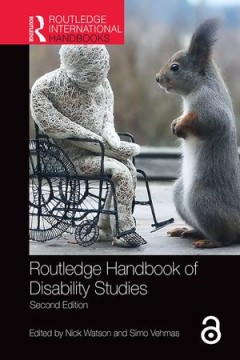
Routledge Handbook of Disability Studies
This fully revised and expanded second edition of the Routledge Handbook of Disability Studies takes a multidisciplinary approach to disability and provides an authoritative and up-to-date overview of the main issues in the field around the world today. Adopting an international perspective and arranged thematically, it surveys the state of the discipline, examining emerging and cutting-edge ar…
- Edition
- -
- ISBN/ISSN
- 9780429774102
- Collation
- -
- Series Title
- -
- Call Number
- 362.4 ROU r
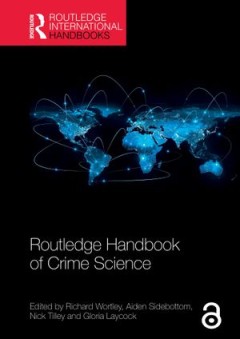
Routledge Handbook of Crime Science
Crime science is precisely what it says it is: the application of science to the phenomenon of crime. This handbook, intended as a crime science manifesto, showcases the scope of the crime science field and provides the reader with an understanding of the assumptions, aspirations and methods of crime science, as well as the variety of topics that fall within its purview. Crime science provides …
- Edition
- -
- ISBN/ISSN
- 9781135981730
- Collation
- -
- Series Title
- -
- Call Number
- 364 ROU r
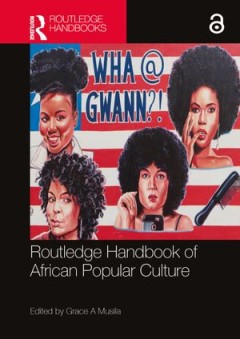
Routledge Handbook of African Popular Culture
This handbook brings together an international team of scholars from different disciplines to reflect on African popular cultural imaginaries. These imaginaries – in the sense of cultural productions, contexts, consumers, producers, platforms, and the material, affective and discursive resources they circulate – are influential in shaping African realities. Collectively, the chapters assemb…
- Edition
- -
- ISBN/ISSN
- 9781000588347
- Collation
- -
- Series Title
- -
- Call Number
- 306 ROU r
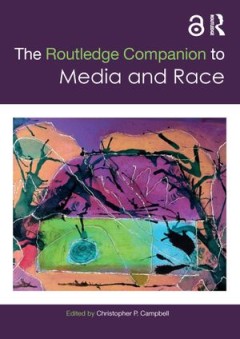
The Routledge Companion to Media and Race
The Routledge Companion to Media and Race serves as a comprehensive guide for scholars, students, and media professionals who seek to understand the key debates about the impact of media messages on racial attitudes and understanding. Broad in scope and richly presented from a diversity of perspectives, the book is divided into three sections: first, it summarizes the theoretical approaches tha…
- Edition
- -
- ISBN/ISSN
- 9781317695837
- Collation
- -
- Series Title
- -
- Call Number
- 302.23 MED m
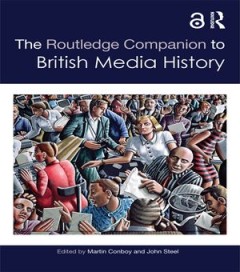
The Routledge Companion to British Media History
The Routledge Companion to British Media History provides a comprehensive exploration of how different media have evolved within social, regional and national contexts. The 50 chapters in this volume, written by an outstanding team of internationally respected scholars, bring together current debates and issues within media history in this era of rapid change, and also provide students and rese…
- Edition
- -
- ISBN/ISSN
- 9781317629474
- Collation
- -
- Series Title
- -
- Call Number
- 302.23 BRI b
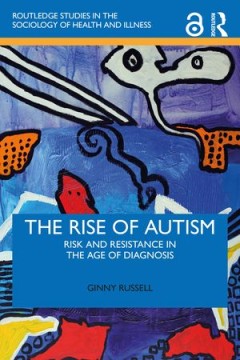
The Rise of Autism: Risk and Resistance in the Age of Diagnosis
This innovative book addresses the question of why increasing numbers of people are being diagnosed with autism since the 1990s. Providing an engaging account of competing and widely debated explanations, it investigates how these have led to differing interpretations of the same data. Crucially, the author argues that the increased use of autism diagnosis is due to medicalisation across the li…
- Edition
- -
- ISBN/ISSN
- 9781000335026
- Collation
- -
- Series Title
- -
- Call Number
- 301 RUS r
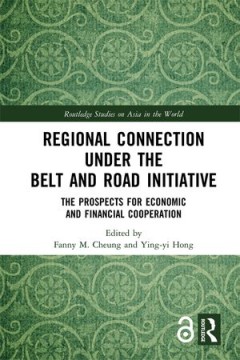
Regional Connection under the Belt and Road Initiative: The Prospects for Eco…
China’s Belt and Road Initiative (BRI) is intended to radically increase investment and integration along a series of land and maritime routes. As the initiative involves more than 100 countries or international organizations and huge amounts of infrastructure construction, cooperation between many different markets is essential to its success. Cheung and Hong have edited a collection of essa…
- Edition
- -
- ISBN/ISSN
- 9780429883842
- Collation
- -
- Series Title
- -
- Call Number
- 305 REG r
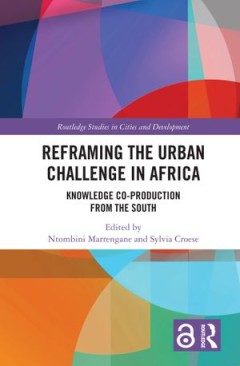
Reframing the Urban Challenge in Africa
This book explores the changing dynamics and challenges behind the rapid expanse of Africa’s urban population. Africa’s urban age is underway. With the world’s fastest growing urban population, the continent is rapidly transforming from one that is largely rural, to one that is largely urban. Often facing limited budgets, those tasked with managing African cities require empirical evid…
- Edition
- -
- ISBN/ISSN
- 9781000333534
- Collation
- -
- Series Title
- -
- Call Number
- 320.17 REF r
 Computer Science, Information & General Works
Computer Science, Information & General Works  Philosophy & Psychology
Philosophy & Psychology  Religion
Religion  Social Sciences
Social Sciences  Language
Language  Pure Science
Pure Science  Applied Sciences
Applied Sciences  Art & Recreation
Art & Recreation  Literature
Literature  History & Geography
History & Geography